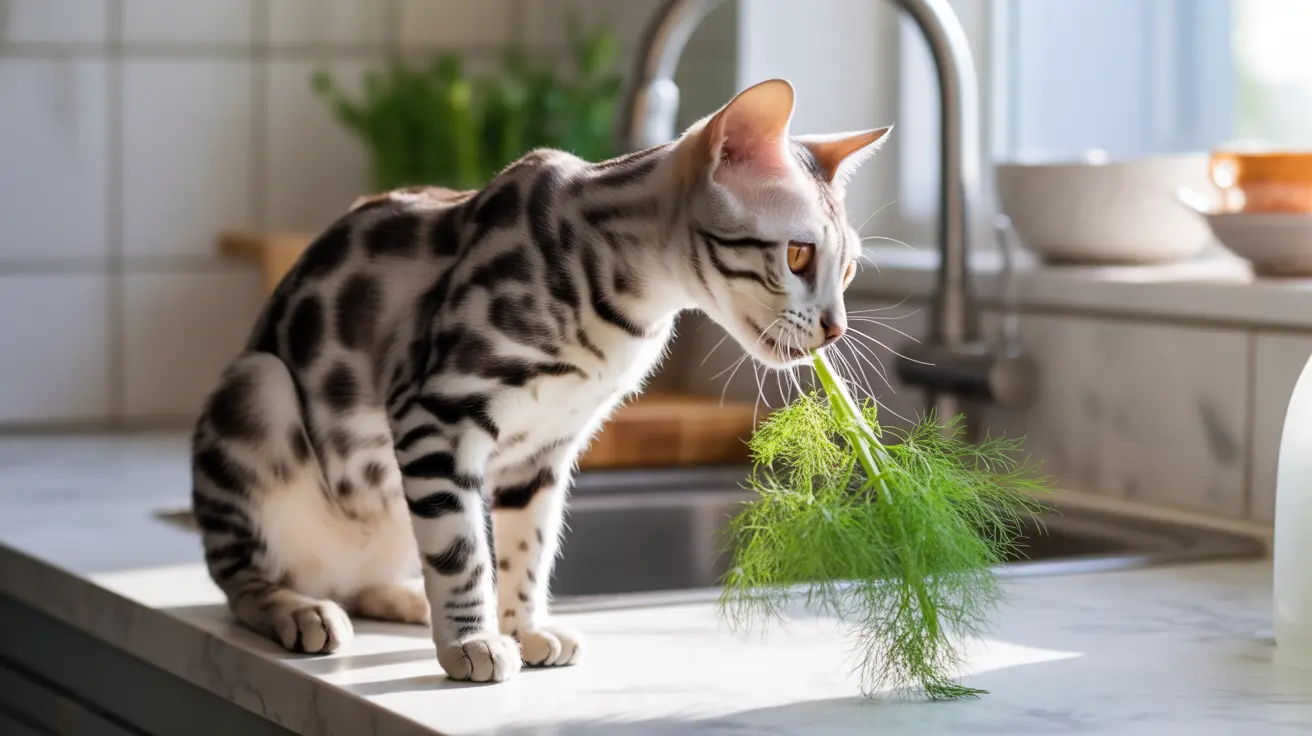What is Fennel and Which Parts Are Safe for Cats?
Fennel (Foeniculum vulgare) is an aromatic plant related to carrots, featuring multiple edible parts including the bulb, stalks, fronds, and seeds. For cats, all these parts are technically safe to consume in their raw, dried, or seed form. The plant has a distinctive anise-like aroma that some cats may find interesting, while others might avoid it entirely.
The most commonly used parts for cats include:
- Fresh fennel fronds
- Fennel bulb (in tiny pieces)
- Fennel seeds (whole or crushed)
- Fennel stalks
Safety and Benefits of Fennel for Cats
While fennel is non-toxic to cats, its benefits are relatively modest compared to its effects in dogs. The potential advantages include:
Digestive Support
Fennel seeds may help with minor digestive issues like bloating and gas. However, these benefits are generally more pronounced in dogs than in cats.
Nutritional Content
Fennel contains various nutrients including vitamins A and C, calcium, iron, and potassium. However, as obligate carnivores, cats derive limited nutritional value from plant-based sources.
Risks and Precautions
Potential Side Effects
While fennel is safe, excessive consumption can lead to several issues:
- Gastrointestinal upset
- Vomiting
- Diarrhea
- Bloating
- Potential photosensitive dermatitis (rare)
Serving Guidelines
When offering fennel to your cat, follow these important guidelines:
- Start with tiny portions (1-2 small pieces)
- Offer no more than twice per week
- Monitor for any adverse reactions
- Discontinue use if any negative symptoms occur
Special Considerations
Kittens and Special Cases
Extra caution is needed for:
- Kittens (higher risk of side effects)
- Pregnant or nursing cats
- Cats with existing health conditions
- Cats on medications
How to Serve Fennel to Your Cat
If you decide to offer fennel to your cat, here are the safest ways to do so:
Fresh Fennel
- Cut into very small pieces
- Mix with wet food
- Offer as a standalone treat
Fennel Seeds
- Crush lightly before serving
- Sprinkle a few seeds on regular food
- Use sparingly
Frequently Asked Questions
Is fennel safe for cats to eat and which parts can they consume?
Yes, fennel is safe for cats to eat in small amounts. Cats can consume the bulb, stalks, fronds, and seeds, though all should be given in very limited quantities.
What are the health benefits of feeding small amounts of fennel to my cat?
Fennel may provide mild digestive support and contains some beneficial nutrients, though cats derive limited benefits from plant-based foods compared to their regular carnivorous diet.
How much fennel can I give my cat without causing digestive upset?
Offer only 1-2 small pieces of fennel no more than twice per week. For seeds, limit to a few crushed seeds sprinkled on food occasionally.
Are there any risks or side effects to watching for when my cat eats fennel?
Watch for signs of gastrointestinal upset, including vomiting, diarrhea, or bloating. Some cats may also experience photosensitive dermatitis in rare cases.
Should I consult a vet before giving fennel to kittens or cats with health issues?
Yes, always consult your veterinarian before giving fennel to kittens, pregnant cats, or cats with existing health conditions or those on medications.
Conclusion
While fennel is safe for cats in small amounts, it should be viewed as an occasional treat rather than a dietary staple. Always introduce new foods gradually, monitor your cat's reaction, and consult with your veterinarian if you have any concerns about incorporating fennel into your cat's diet.






